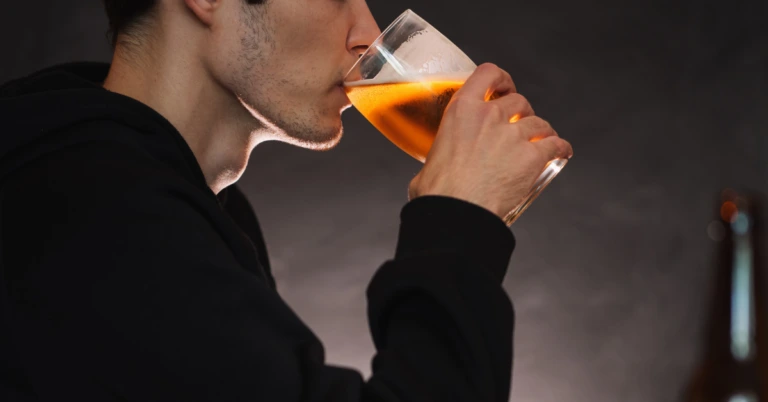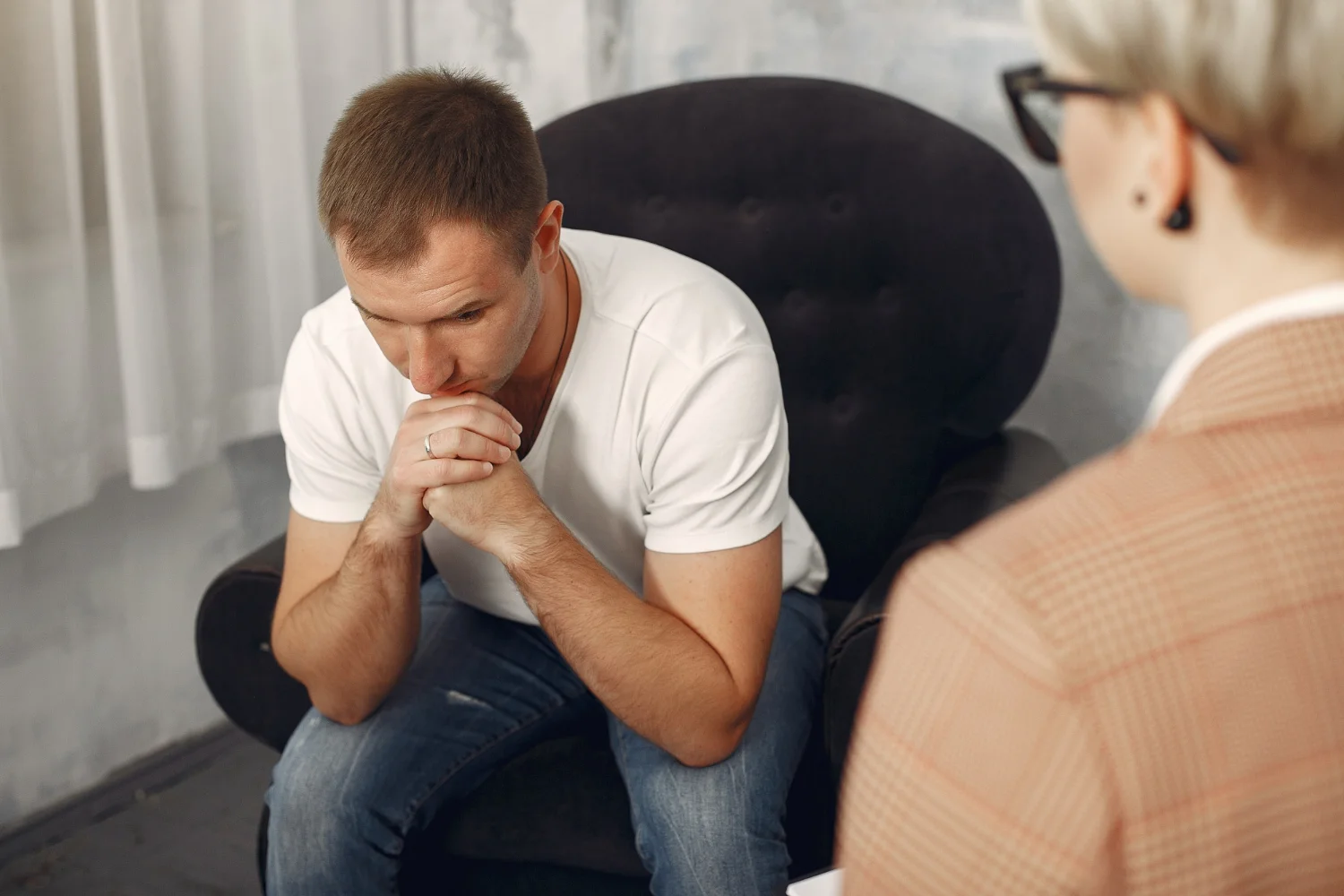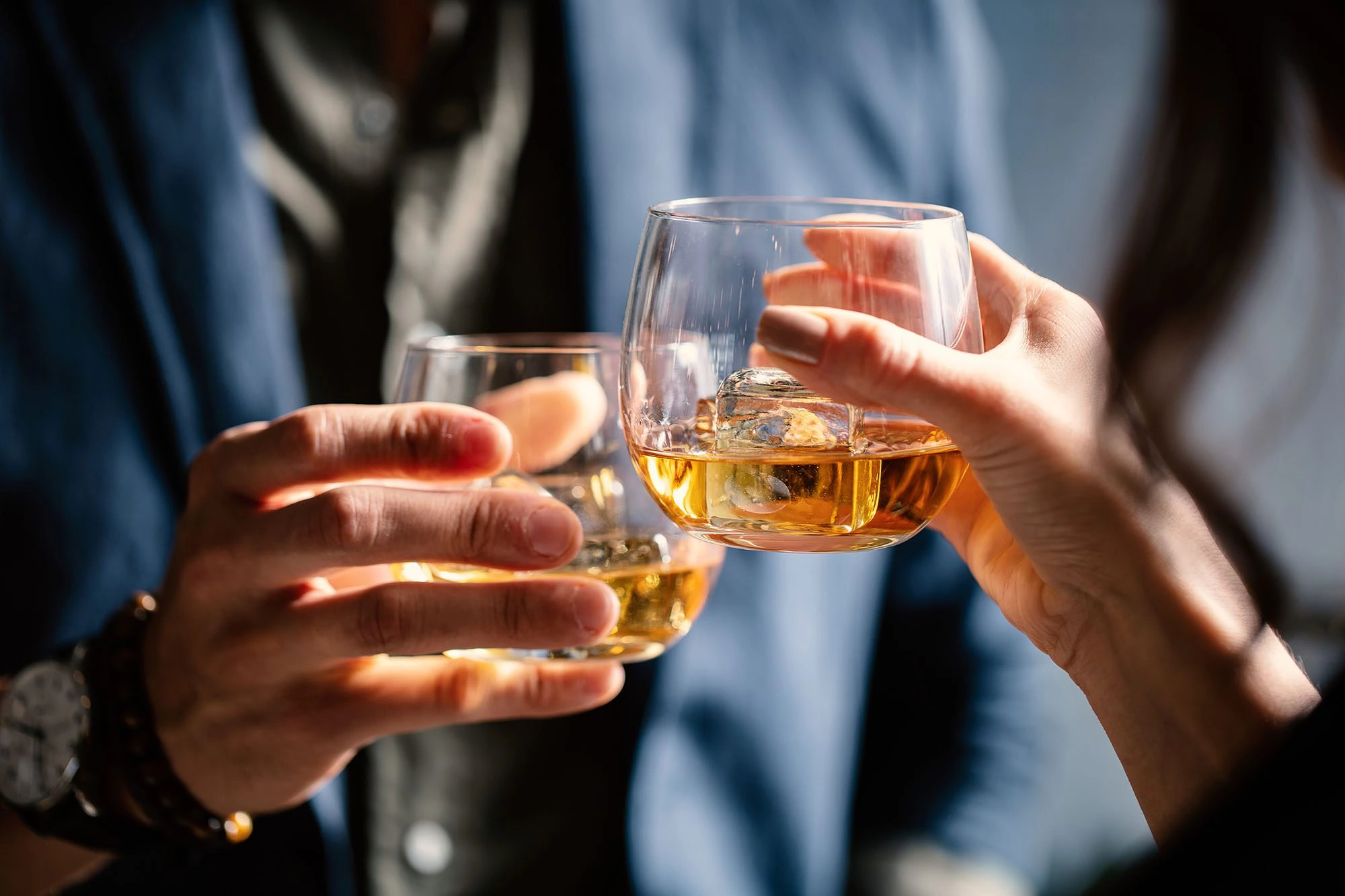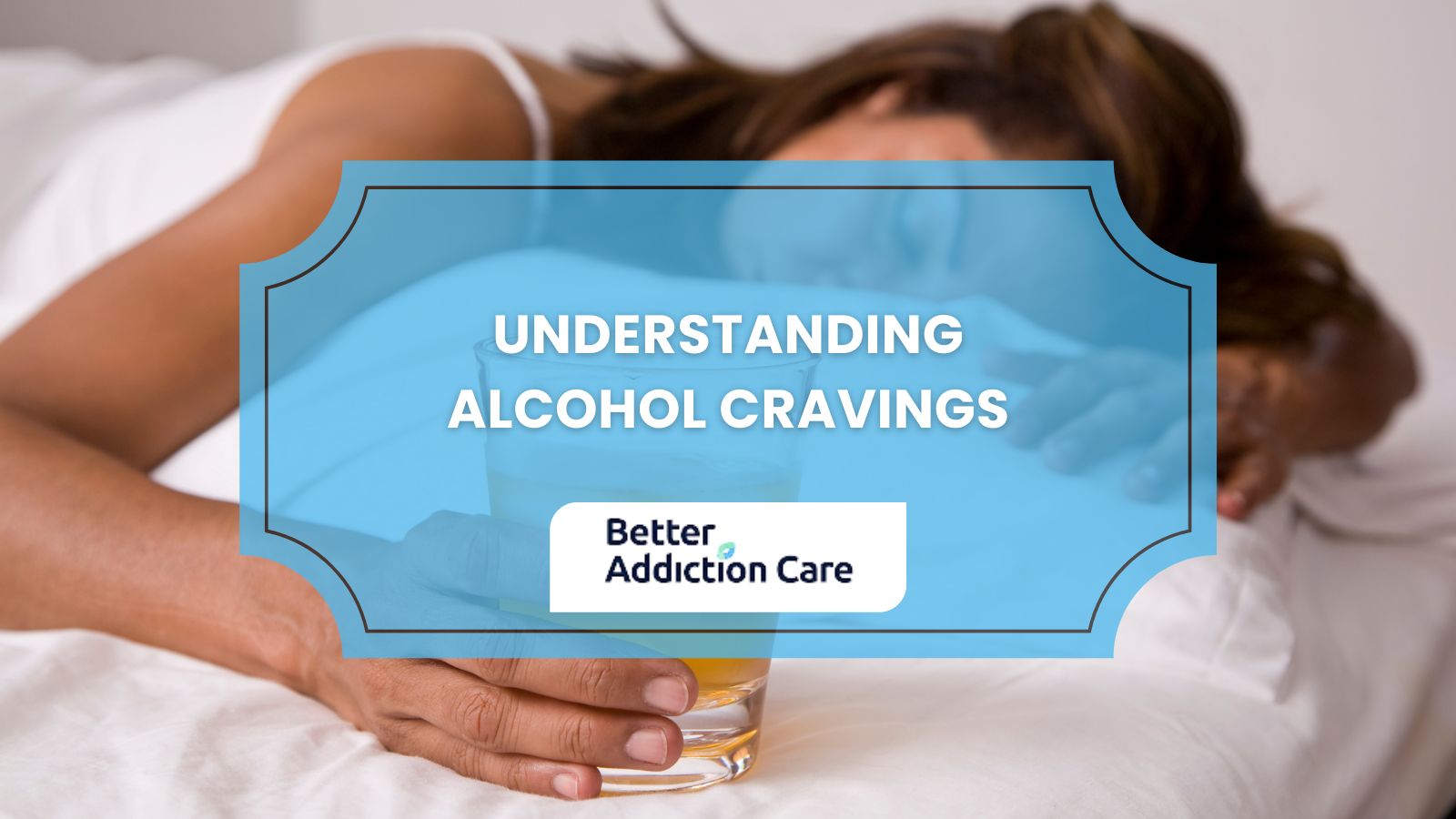Your body has inner wisdom and knows what causes harm; in that sense, we should talk about the body's response to drinking. Drinking leads to the release and retention of gas and the awful feeling of bloating. Bloating is directly related to water and gas retention, which occurs when alcohol enters the body, affects the digestive system, and alters the digestive process. Short-term gas production may be irritating, but long-lasting gas and bloating can be a real problem in a person's life.
There are some tricks you can implement to diminish the effects of alcohol on the digestive system, such as drinking enough water before going to a cocktail, reducing the consumption of alcoholic beverages, especially those that are carbonated, and using ginger tea or peppermint tea. By implementing these preventative measures, individuals can combine a healthy relationship with alcohol and an amazing, bloating-free life, with social events no longer being a problem. Notice that even when you could always apply these tricks, bear in mind that the absence of bloating should not be a reason to increase your alcohol consumption.
What Post-Drinking Habits Can Help Your Body Recover From Alcohol-Induced Bloating More Quickly and Effectively?
Post-drinking habits that help reduce alcohol-induced bloating include rehydrating with water or electrolyte-rich fluids, eating fiber-rich anti-inflammatory foods, engaging in light physical activity, and getting adequate rest. Hydration helps flush out excess sodium and toxins, while fiber supports digestion and reduces gas buildup.
Gentle movement, such as walking or stretching, stimulates intestinal activity, and sufficient sleep allows the body to repair inflammation-related damage. Avoiding additional irritants, like high-sodium snacks or carbonated drinks, further speeds up recovery.
What Causes Alcohol and Bloating?
Alcohol and bloating are caused by stomach lining inflammation (gastritis), increased gas production, fluid retention, and high caloric intake that contribute to abdominal distension. Alcohol irritates and inflames the stomach mucosa, raising acid levels and damaging the gut lining, while disrupting gut flora and fungal diversity, which increases fermentation and gas buildup, especially with beer and carbonated drinks. High-calorie, dehydrating alcoholic beverages also promote puffiness and bloating that resemble short-term weight gain.
How Long Does Alcohol and Bloating Last?
Alcohol and bloating typically last 24 to 72 hours, depending on alcohol intake and individual digestive health. Most people recover within a few days. Understanding Alcohol Bloating for those with underlying digestive issues, heavy consumption patterns, or chronic use experience prolonged bloating or complications such as gastritis. But those with underlying digestive issues, heavy consumption patterns, or chronic use may experience prolonged bloating or complications such as gastritis.
What Can Reduce Alcohol and Bloating Quickly?
You can quickly reduce alcohol and bloating by hydrating, avoiding carbonated or sugary mixers, eating potassium-rich foods, engaging in gentle movement, and using antacids or herbal teas. Hydration dilutes irritants and supports kidney filtration, potassium balances sodium-induced water retention, and light activity like walking promotes gas release. Herbal teas such as peppermint or chamomile and over-the-counter antacids can soothe gastrointestinal irritation and improve digestion.
Do All Alcoholic Beverages Cause Bloating?
Not all alcoholic beverages cause bloating, as the risk is highest with carbonated, sugary, or congener-rich drinks like beer, champagne, and sweet cocktails, while clear, low-sugar spirits in moderation are less likely to trigger it.
If you have doubts about the cause of your bloating, it is a good start to understand that it is a medical fact that alcohol causes an imbalance in the digestive system, and this, in turn, would lead to alcohol symptoms. Bloating is one of the undesired consequences of this imbalance.
No, not every alcoholic beverage causes bloating, at least not with the same severity. Some alcoholic drinks induce the production of gas and bloating more than others. Several factors, such as alcohol type, concentration, carbonation level, and individual tolerance, affect the development of bloating and its severity.
When you are considering how the type of alcohol affects you and which type you consume without getting bloated or while getting the least possible production of gas, you need to be aware that certain drinks like beer and champagne can exacerbate bloating. On the other hand, clear drinks like gin cause less bloating and gas, and they make them a good option to consume an alcoholic beverage -in moderation- without the uncomfortable digestive symptoms.
If you are talking about concentration, alcohol mixed with soda water, even with the carbonation, will cause less bloating due to a lower level of alcohol concentration and a clear mix of beverages.
While thinking about the carbonation level in an alcoholic beverage, keep in mind that anything clear and gas-free, as well as anything blended with water or fresh juice, will produce less gas than any form of carbonated drink, which will always produce some level of gas.
When considering an individual's physiology, remember that everyone has a unique predisposition. It is vital to understand your tolerance and sensitivity to different alcoholic beverages. Everyone's body reacts differently, so this knowledge helps you identify the drink that causes the most bloating and makes informed decisions to alleviate discomfort.
|
Factor to Consider
|
Influence on Bloating
|
Key Point
|
|
Alcohol Type
|
Certain drinks may increase and aggravate bloating.
|
Different alcoholic beverages vary in their effect on bloating.
|
|
Concentration
|
Beverages with lower alcohol concentration may cause less bloating.
|
Drinks containing less alcohol cause less bloating.
|
|
Carbonation Level
|
Carbonated drinks tend to induce more bloating compared to non-carbonated options.
|
Carbonation in beverages is associated with increased bloating.
|
|
Level of Tolerance
|
Everyone's tolerance and sensitivity to different alcoholic beverages is different.
|
Individual differences in tolerance and sensitivity influence how each person reacts to different alcoholic beverages.
|
How Do You Get Rid of Alcohol Bloating?
To relieve alcohol bloating, a combination of medical and home therapies customized to individual needs is used. When faced with the discomfort of alcohol-related bloating, people frequently seek relief through a variety of methods.
Listed below are the 2 ways to get rid of alcohol bloating.
- Medical Options
- Home Remedies
Medical Options
Some over-the-counter medications, such as antacids or simethicone, can help you feel relieved of different symptoms, such as gas pain and bloating, by dissolving gas bubbles in the digestive system. In cases of extreme gas, your doctor may recommend medication to alleviate the condition. Prokinetics is one option among many that can lessen the likelihood of bloating by improving digestion and intestinal motility. Some over-the-counter options include digestive enzymes, which speed up the digestion of carbohydrates and help minimize gas production, and probiotics, which help restore the balance of the gut microbiota.
Home Remedies
Hydration is fundamental for any process. Drinking water is always good unless a medical contraindication is present. Keep in mind that water can help your body get rid of toxins, reduce alcohol dehydration, and alleviate bloating symptoms. Herbal teas are among the most popular home remedies; peppermint, ginger, or chamomile have natural anti-inflammatory properties that can soothe the digestive system. Another natural remedy could be good for more than bloating, and it is engaging in light physical activity like walking or yoga that can help stimulate digestion, relieve bloating, and improve your overall health.
Dietary adjustments are also key in reducing bloating. If you are planning on having some drinks, it would be a good idea to avoid carbonated beverages, high-fat foods, and foods high in sodium.
One of the main keys to avoiding bloating is moderating alcohol intake or abstaining from alcohol. Also, try to consume foods like fennel or pineapple that have natural gas-relieving properties. A warm compress to the abdomen can help relax the muscles and reduce bloating discomfort. Mindful eating, including eating slowly, chewing food thoroughly, and avoiding overeating, can prevent excessive gas production and bloating. By incorporating these medical and home remedies into your routine, you can effectively alleviate alcohol bloating and improve digestive comfort.
Can Quitting Drinking Help with Alcohol Bloating?
Yes, it can help you reduce or eliminate bloating. If you are trying to get completely free of bloating, it is recommended that you limit or quit drinking completely. Due to its gastrointestinal adverse effects, alcohol is a common cause of bloating. Quitting drinking can help you reduce gas, but it may also be beneficial for overall digestive health, promote better hydration, and even boost liver function.
What Should I Do if I Want to Get Rid of Alcohol Bloating but Can’t Stop Drinking?
Seeking treatment is a critical first step if you're having trouble cutting back on alcohol but still want to avoid the unpleasant side effects of alcohol bloating. This is especially true if you think you may have developed an addiction. Consult a healthcare professional for personalized guidance and encouragement. They can assist you with changing your alcohol use, reducing bloating symptoms, and treating any underlying causes of your drinking practices with individualized treatments.
Seeking treatment is a proactive step toward improving your health and overall well-being. Whatever challenges you have, you should face them, especially if they are related to your health. Remember that you have all the support you need and are not alone on this journey.
Help is available in a variety of forms, including medical interventions, support groups, and therapy, so you can regain control of your drinking and prioritize your health. If you need help stopping drinking, check out our Treatment Center Finder.










